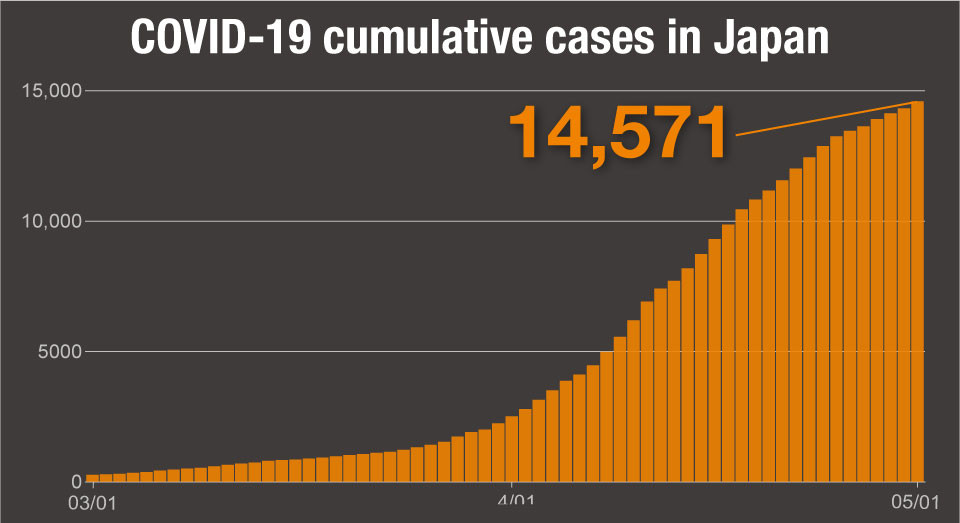The cumulative number of cases in Japan now stands at 14,571. The 266 new cases reported on May 1 represented a significant drop from the high of 719 recorded on April 11.
The deputy head of the government’s panel of experts, Omi Shigeru, cautioned that the improvement disguises a disparity between rural and urban areas. He says the panel believes that the coronavirus was carried from major cities to rural areas, and the pace of decline in rural areas is slow compared to in Tokyo.
He also said the decline is slow compared to the speed at which the infections soared after March 20.

The experts said Japan’s medical system is still under strain because of the large number of patients on ventilators, and the situation can only improve gradually. They warned that a resurgence of the virus could overwhelm existing resources.
They concluded that the current framework must remain in place for the time being. Otherwise, they said, the efforts made by people so far might all be for nothing.
They say areas where infections are spreading should maintain strict restrictions on public activities until the tally falls to a certain level. But they say the guidelines can be eased in regions with a limited number of new infections.
The panel also acknowledged that it is important to find ways to reopen schools, while taking measures to minimize the risk of infection among children.
They say the key is to secure quick diagnostic tests and sufficient medical resources, and to limit the geographic spread of infections.
Omi says there are concerns that an extended state of emergency could have an adverse impact on people’s livelihoods, and that people may also start to feel “social-distancing fatigue”. He says that in order to bring the coronavirus pandemic under control, it is essential that people keep making efforts to change their behavior.
But he says it may also be important to consider gradually easing restrictions on activities that are of social importance and for which measures can be taken to reduce the risk of infection.

Japanese Prime Minister Abe Shinzo spoke to reporters on Friday evening after a briefing from the panel of experts. He says his government plans to make a formal decision on Monday about extending the nationwide state of emergency for about a month. The current declaration expires on Wednesday.
Abe says he has instructed the minister in charge of the pandemic response to quickly coordinate measures tailored to the conditions of each region, based on the experts' views.


